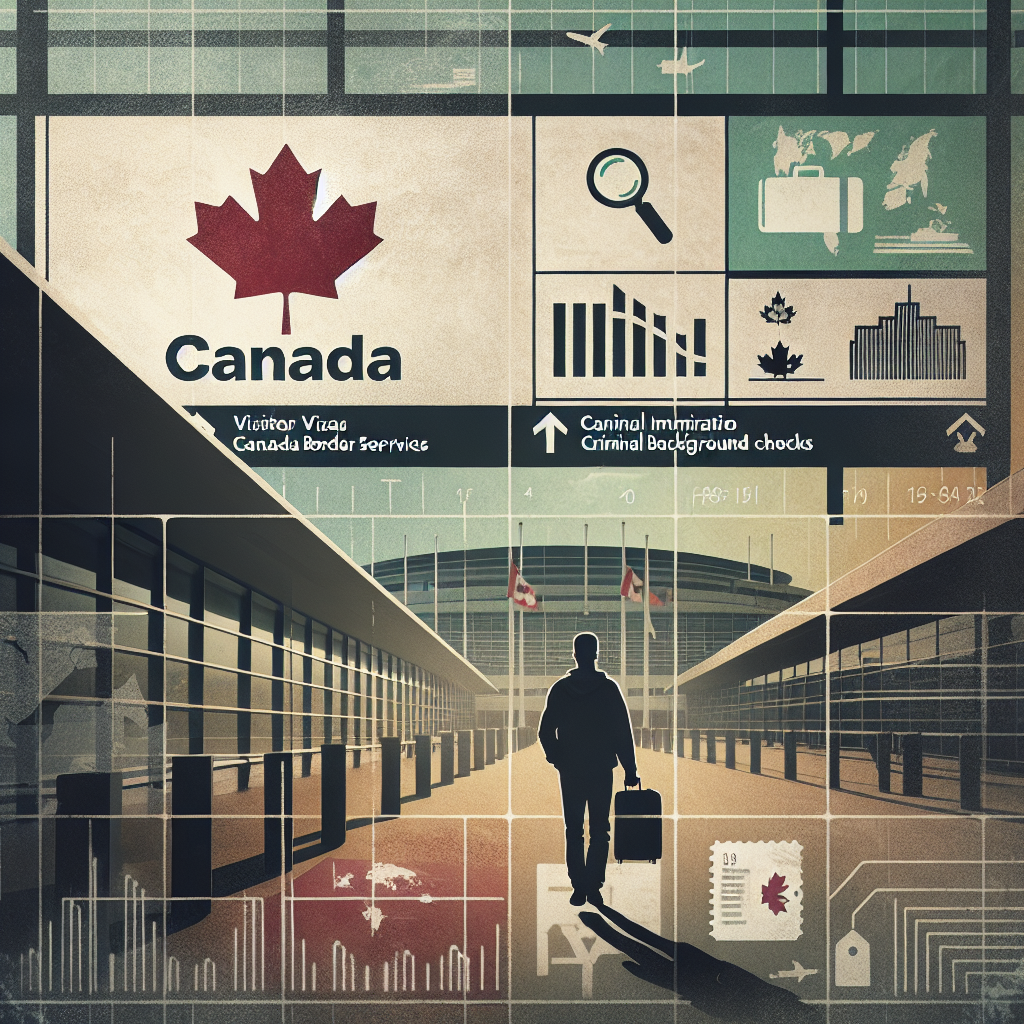If you’ve ever thought about visiting Canada, you might want to pay closer attention to the country’s visa rules. Canada recently tightened its screening process for visitor visa applicants, especially focusing on individuals with criminal histories. These updated checks are part of Canada’s effort to keep the country safe while maintaining a fair and transparent immigration system.
So, what exactly does this mean for travelers? In this post, we’ll break it all down in simple terms—from what these new changes involve to who might be affected and how it could impact your plans to visit the Great White North.
Why Canada Is Making This Change
Canada is known for being welcoming and diverse, but like any country, it also prioritizes safety. With an increasing number of visitor visa applications coming in every year, immigration authorities are aiming to improve security measures.
The new adjustments are primarily designed to prevent individuals who may pose a risk from entering the country. According to Immigration, Refugees and Citizenship Canada (IRCC), enhanced criminal background checks are just one way to better assess the eligibility of applicants.
Understanding the Enhanced Criminal Checks
Under the updated process, Canadian immigration officers will now pay even closer attention to an applicant’s criminal history. This doesn’t only apply to serious crimes—you could be affected even if you’ve had minor run-ins with the law.
Here’s what they’re looking for:
- Any past criminal convictions, even if they happened years ago
- Charges that didn’t lead to a conviction but remain on your record
- Pending charges or ongoing legal matters
- Incidents related to violence, fraud, or illegal drugs
If any of these apply to you, there’s a chance your application for a Canadian visitor visa could be denied.
What This Means for You
Got a criminal record? That doesn’t automatically mean you’re banned from entering Canada forever. However, it does complicate the process. Depending on the circumstances, you may need to go through additional steps to prove that you’re no longer a risk.
For instance, if your record is from many years ago and you’ve been a law-abiding citizen since, you might be able to apply for something called “criminal rehabilitation.” Essentially, it’s a formal way to show you’ve turned things around and deserve a second chance to visit Canada.
If you’re unsure whether your past could affect your application, it’s a good idea to consult with an immigration consultant or lawyer who specializes in Canadian visas.
Applying for a Visitor Visa: What’s New?
With this new layer of screening, submitting a visitor visa application to Canada might take a bit longer. That’s because officers will need extra time to verify criminal history through various databases, both domestic and international.
Documents You May Need
In light of the new checks, the IRCC may now request more documents to support your application. These can include:
- Police clearance certificates from every country you’ve lived in for six months or more
- Court records or judgment papers for any past convictions
- Proof of your rehabilitation or efforts to reform (like certificates from counseling programs)
Having these ready can speed up the application process and improve your chances of approval.
How to Prepare Before Applying
Thinking ahead can make a huge difference. If you want to visit Canada and suspect that your record might be a problem, here are a few steps you can take before applying:
- Order a background check on yourself to see what’s on your record
- Gather any legal documents that explain past charges or convictions
- Consider applying for criminal rehabilitation if your record is affecting your application
- Speak with a legal professional for personalized advice
Being honest during the application process is key. Leaving out details or trying to hide your past could lead to your visa being rejected—or worse, a possible ban from entering Canada in the future.
Who Should Be Concerned?
This new policy affects a wide range of people, especially those applying for temporary resident visas, including visitor visas. If you’re planning a vacation, visiting family, or even attending a conference in Canada, you’ll be subject to the same level of scrutiny.
For example, imagine John, a 45-year-old from the UK who was convicted of a DUI when he was 22. He might assume that offense is long behind him—but under these new rules, Canada could still deny his visa application unless he’s completed formal rehabilitation and demonstrates he meets the requirements.
What If You’re Already in Canada?
These changes mainly affect new applicants. If you’re already in Canada on a valid visa, you’re not likely to be impacted unless you apply for an extension or a different type of status.
However, it’s always a good idea to stay informed about immigration policies, especially if you plan to apply for permanent residency or other long-term immigration programs in the future.
Canada’s Message: Safety First, But Fair
While these changes might seem strict, Canada emphasizes that its doors are still open—just more carefully monitored. This isn’t about shutting people out; it’s about ensuring that those who enter the country pose no threat to public safety.
The idea is to protect Canadians without turning away good people who may have made mistakes a long time ago. IRCC has even stated that the goal is to create a more efficient and secure immigration system, one that people can trust to be both fair and thorough.
Final Thoughts
Canada remains one of the top destinations in the world for tourism, education, and business. If you’re hoping to visit, these new rules don’t mean you’re out of luck—they just mean you need to be better prepared.
Think of this as Canada adjusting its front door. The door is still open, but the locks are a little more secure. So if you have a complicated past, don’t panic—just take the right steps to show that you’re ready for a responsible and safe visit.
Integrity, honesty, and preparation now carry even more weight in the visitor visa process. Start early, stay informed, and seek help if you need it. Canada is still welcoming visitors—it’s just doing so with a little more caution.


